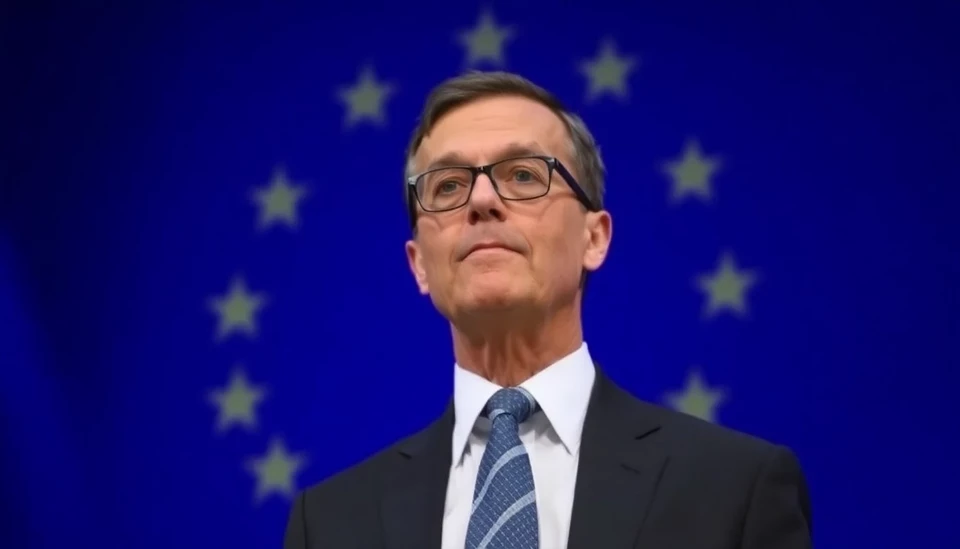
In a recent statement that has captured the attention of European markets and policymakers alike, François Villeroy de Galhau, the Governor of the Bank of France and a member of the European Central Bank (ECB), made a poignant assertion regarding the direction of Europe’s future. He emphasized that it is not the ECB, but rather the individual governments across Europe, that will play a critical role in shaping the continent’s economic landscape.
During his address, Villeroy highlighted the prevailing uncertainties facing the Eurozone, particularly in the wake of ongoing geopolitical tensions and economic challenges. He underscored the importance of national governments taking decisive action to foster growth and stability, while pointing out that monetary policy alone cannot effectively tackle the complex issues at hand.
"The Governing Council of the ECB can help guide and support, but it is the government policies that will define our economic and social framework," Villeroy stated, emphasizing that responsible fiscal measures are imperative in bolstering the economy. His remarks come as the Eurozone grapples with stagnating growth, elevated inflation rates, and an energy crisis exacerbated by the ongoing conflict in Ukraine.
Villeroy’s comments resonate with a broader sentiment circulating among economists and political leaders who believe that financial policy reform is essential for long-term recovery. He urged European nations to prioritize investments in infrastructure and green technologies, suggesting that such moves are pivotal to revitalize the economy and improve public welfare. "We must invest in our future now to ensure stability and growth for generations to come," he added.
This urgent call to action has sparked discussions regarding the necessity for collaborative fiscal efforts among EU member states, fostering a sense of solidarity in addressing shared challenges. With the Russo-Ukrainian War creating ripple effects that undermine economic confidence, Villeroy’s insistence on the governments’ role places an onus on EU leaders to coordinate strategies effectively.
As debates unfold in the backdrop of Villeroy's statements, other ECB officials have echoed similar sentiments, recognizing that the responsibility for navigating through turmoil lies not solely with monetary authorities but requires a holistic approach involving active government engagement. The interconnectedness of economic policies within the EU necessitates a strategy that includes refunding social systems and ensuring equitable economic participation.
Moving forward, observers will keenly watch how European governments respond to Villeroy's clarion call. Economic imperatives will likely shape upcoming budgetary decisions and strategic planning, particularly as the EU aims for a cohesive response to external pressures.
This wave of discussion also emphasizes the broader implications for European governance, showcasing a potential shift in how EU countries prioritize their roles on the international stage. As Villeroy championed the need for thoughtful action, it raises pertinent questions about the future dynamics between national and European-level policy frameworks.
In conclusion, the ECB governor’s address serves as a reminder of the fundamental necessity for cooperation among nations within Europe to collectively shape a resilient response to today's challenges. The dialogue, now more crucial than ever, will set the tone for the continent’s economic trajectory moving forward.
#ECB #Villeroy #Europe #GovernmentPolicy #MonetaryPolicy #EconomicGrowth #EU
Author: Daniel Foster




